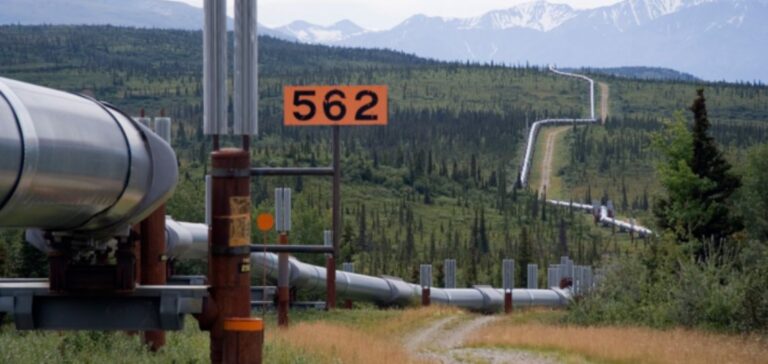The route of the gigantic Siberian Force 2 pipeline, which will eventually carry 50 billion cubic meters of gas from Russia to China, will soon be finalized for the Russian section, the deputy prime minister in charge of energy announced on Wednesday.
Siberian Force 2 pipeline: Latest developments and prospects for signing the contract with Beijing
“(It) is in its final phase,” said Alexander Novak in an interview with Russian magazine Energy Policy.
According to him, this pipeline, for which Moscow hopes to sign the contract with Beijing before the end of the year, should pass near the city of Atchinsk, in southern Siberia, then Krasnoyarsk, Irkutsk, then south of Lake Baikal, before reaching Naushki, on the border with Mongolia.
On Russian soil, “a project to build a branch of the gas pipeline from (this) village to Ulan-Ude, then to Chita (further east, editor’s note), with a total length of 700 kilometers, is under study”, he also indicated.
In March, Vladimir Putin, alongside Xi Jinping in Moscow, asserted that “all agreements have been reached” between Russia and China for this mega-project several thousand kilometers long. But their final joint declaration merely encouraged “research and consultation”.
Redirecting Russian gas supplies from Europe to Asia: the Siberian Force 2 pipeline and the challenges ahead
This project will enable Russia to redirect its gas deliveries from Europe to Asia, after losing the European market to sanctions and the sabotage of the Nord Stream pipelines in the Baltic Sea in September 2022. However, Beijing has so far avoided any formal commitment to the project, whose timetable is still very unclear, with Moscow suggesting that construction could start as early as 2024.
Alexander Novak assured us in March that Gazprom, the Russian state-owned company, and CNPC, the major Chinese group in the sector, would sign the contract “by the end of the year”. Russia currently exports natural gas from Siberia to northeast China via the Siberian Force 1 pipeline, and aims to deliver 98 billion m3 of gas and 100 million tonnes of LNG to its diplomatic and economic ally every year by 2030.
Why does it matter?
This breakthrough in the Siberian Force 2 pipeline route has major implications for the global energy market. This project will enable Russia to diversify its gas exports, reducing its dependence on Europe while strengthening its energy links with China. This could also influence geopolitical dynamics in the region. Investors and energy market observers should keep a close eye on this major project, as it could have a significant impact on the international economy and politics.






















